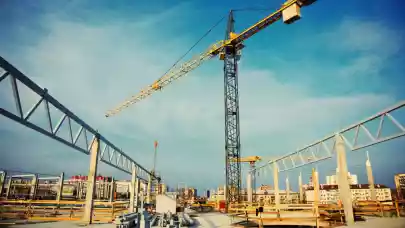
In less than five months, the new building code for common buildings in the Czech Republic is going to enter into force. However, clouds are gathering around it. Builders are afraid of the shortcomings they have encountered recently when familiarizing themselves with the new requirements of the legislation, reports Seznamzpravy.cz.
The construction legislation, which was worked on not only by the current but also by the previous government, aims to speed up the construction process and thus the entire construction in the Czech Republic. "There are so many changes, and so many unfinished ones, that construction authorities, under the weight of new procedures, modified terminology and new processes, simply won't know how and according to what to make decisions," warns Robert Špalek, Chairman of ČKAIT (Czech Chamber of Authorized Engineers and Technicians). There is a lack of information and time, builders are afraid and paint black scenarios. The new Building Act may extend the construction process even further and ultimately make the construction of housing in the Czech Republic more expensive.
"Lengthy processes associated with building permits significantly increase the cost of construction. They affect absolutely all buildings, from the largest to small family houses, and every builder or investor feels it. And it's not a small matter, faster processes would bring tens of billions of savings to the entire industry every year - to the state and private builders," said Rudolf Vacek, Director of Development at Penta Real Estate. At the same time, real estate prices in the Czech Republic have grown almost the fastest in Europe in the last three years.
Builders find the biggest shortcomings in two areas - in implementing regulations and digitization. According to Ondřej Šťastný, Chief Analyst at Central Group, in connection with the uncertain state of digitization and implementing regulations, there is a literal threat of a collapse of the new construction permit system. “This can bring huge losses for both investors and the state.
However, the Ministry of Regional Development defends the current status of the decrees of the new construction legislation, which will come into force at the beginning of July 2024 for all builders and investors in the Czech Republic. According to the Minister for Regional Development, the legislative process continues according to the approved schedule, and the decree on construction requirements will come into effect, as well as the decree on construction documentation, on 1st July.
However, according to the builders, the problem may arise even if these deadlines are met. The stakeholders will not be duly prepared for the new rules. "So we're just going to learn how to deal with them, and the same is waiting for the building authorities," adds Vacek from Penta Real Estate.
The digitization of the entire process is to a large extent contributing to the acceleration of construction management. In practice, builders should apply for building permits electronically, and building authorities will maintain electronic files of buildings that can be viewed online. But even in this case, builders are worried. According to the Director of the Association of Developers, Tomáš Kadeřábek, the uncertainty surrounding the issue of digitization is compounded by the lack of information. "As a result of their absence, speculations multiply, and they multiply uncertainty and destabilize the entire market. Speculation, uncertainty and fear have long-term harm to the credibility of the Czech Republic, both among its residents and entrepreneurs, as well as among our foreign partners and investors," said Kadeřábek.
In addition to some areas of the new legislation, builders also see positive changes in the amendment. "Complete appeal" represents a relatively fundamental change - it now applies that if a participant in the construction procedure does not like something and appeals, the superior building authority returns the matter for a new hearing. It will now be able to handle the matter straight away, which will eliminate at least one bureaucratic wheel.



